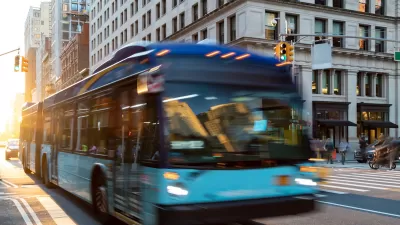Todd Litman
Todd Litman is the executive director of the Victoria Transport Policy Institute.
Contributed 448 posts
Todd Litman is founder and executive director of the Victoria Transport Policy Institute, an independent research organization dedicated to developing innovative solutions to transport problems. His work helps to expand the range of impacts and options considered in transportation decision-making, improve evaluation methods, and make specialized technical concepts accessible to a larger audience. His research is used worldwide in transport planning and policy analysis.
Mr. Litman has worked on numerous studies that evaluate transportation costs, benefits and innovations. He authored the Online TDM Encyclopedia, a comprehensive Internet resource for identifying and evaluating mobility management strategies; Transportation Cost and Benefit Analysis: Techniques, Estimates and Implications, a comprehensive study which provides cost and benefit information in an easy-to-apply format; and Parking Management Best Practices, the most comprehensive book available on management solutions to parking problems. Mr. Litman is a frequent speaker at conferences and workshops. His presentations range from technical and practical to humorous and inspirational. He is active in several professional organizations, including the Institute of Transportation Engineers and the Transportation Research Board (a section of U.S. National Academy of Sciences). He is a member of the Editorial Advisory Board of Transportation Research A, a professional journal.

Pedestrians First: Tools for a Walkable City
A comprehensive new website provides information on why and how to improve community walkability and offers practical tools for evaluating walking conditions.

Valuing Ounces of Prevention
Planning decisions often involve trade-offs between short-term prevention costs and larger future savings and benefits. Planners can help communities determine what best reflects their priorities.

Planners be Nimble, Planners be Quick
Planning should be methodical and responsive to community needs, but not to the point of inefficiency. Too much planning can be just as harmful as too little.

Planning for Equity in an Ideologically Conservative Community
To support equity goals, planners must accommodate diverse ideological perspectives, including political environments that focus on functional fairness rather than demographic categories.

Applying the New Traffic Safety Paradigm
The new traffic safety paradigm recognizes exposure — total vehicle travel — as a risk factor, and therefore the additional casualties caused by planning decisions that induce more driving, and the safety benefits of VMT reductions.

























